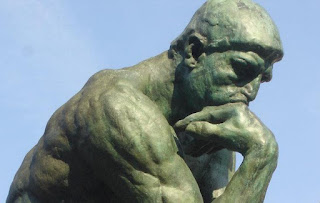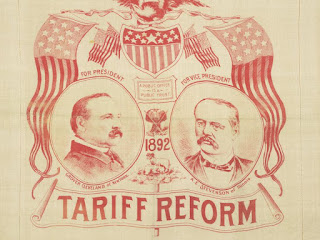The Definition of the Self - Laws
The so-called individuals are like mice living in the shadow of the cat, feigning the industry of freedom, but secretly hoping the cat eats someone else.
We live in times where so-called patriots hide under the pretense of 'good' actions. They say:
We need to obey the law. We need to show 'them' that we're good people, just law abiding citizens.
Good has been redefined as a follower of other people's views on reality. You are now, only good if you listen to the outcome of others. Good is no longer based on the individual's actions.
It is not simply that the act of a man killing another is the immoral act any longer. The individual is not judged for his direct action. Instead, he is measured by the value of the legality, that is, by the will of other people. The act of committing the murder is wrong not so much as an act of violence against another, but as a sin against the restraints demanded of by the State. You are guilty more of your individualism, your opposition to the State than you are of the crime in question. Murder is a crime because it violates a core ethics of self-ownership because it takes the authority of the victim away to determine their own value. It is not a social restriction imposed by words on a page. Yet, the State's epistemology is based on the fact that you are a criminal because you violated the expected language imposed by a majority. From the State's perspective, there is no real difference between not wearing your seatbelt and murder. I'm not talking about the semantic difference, which clearly there is even to the judge and jury, I'm specifically talking about the method of learning that arrives at the notion of authority based on a construct of majority.
This is more plainly clear when you compare legal fiat actions against their voluntary equivalents. For example, the individual that sells raw milk to a person who wants to buy it is not guilty of anything more than doing something their political masters demand they do not do. Thus, they are not guilty of any real crime. Neither the seller of the milk nor the buyer of the milk is harming the other. In fact both buyer and seller profit from the exchange. They are interacting by purely voluntary means that has nothing to do with the State. Yet, the State inserts itself into the equation. This act makes the individual the property of the State who first must ask for permission to even participate in his own life.
Thus, the real crime that our legal system cares about is the violation of the law itself, that is, the legal system cares only about the notion of legality that it creates for itself. It is the act of being an individual that the law is actually designed to eliminate because it is the State claiming the right to own the transaction and outcome of that transaction. The physical text of the law is merely a disguise used to give the theft of liberty the apparent authority of being legitimate. This means, simply, that the State's claim on the definition of the word Justice is not what the individual person's gut tells them that justice is composed of, but is instead the State legitimizing its actions by ensuring that the act it created for itself is followed according to a set of rules, that it also wrote for itself. A court case for our milk selling would be considered Just, because it was held in a court, with a judge, and followed a matter or prescribed proceedings. Justice, for the State, is not actually doing and following Just acts but ensuring they follow the rules they wrote in the proceedings of the circus.
Again, murder is wrong because it is a violation of the person being murdered's natural right to self-existence. The act is completely involuntary on the part of the person being murdered. Yet, as I point out in Unification of Self and Liberty, the state allows its agents the authority to murder. The State itself cannot be measured on the value of moral truths because it has no method to say murder is wrong because it considers murder a method of arriving at Justice. It cannot say it is wrong because it allows itself the authority to use it as a means to get its way. Imagine trying to measure a distance but the person who owns the tools to measure keeps rearranging the numbers and lengths to suit its current view on the subject. The State cannot be considered when it comes to owning the right and authority to set such definitions because it has no way of putting those things into stone. The State changes to suit its most current demands.
Thus, the State's only method of determining that murder is wrong is because they wrote it down and called those words an abstract notion: "Law". This thing called a law they gave themselves the authority to enforce. If the State needs to ignore the words, they do, if they chose to use the words, they do. Sometimes they change the nature of it by one of them saying they won't follow the words. Sometimes a group of them get together, calling themselves an authority of judges, a panel of judges - or a supreme court if you will - and tell the State they disagree. The State sets up a false value on the nature of truth, that it supposes is legitimate; that is supports as legitimate through violence. It only believes it has this power because it is willing to violate individuals with force.
The way they confuse us is that we know murder is wrong because it violates a persons authority over themselves, so when the State makes the Law we assume that the State Also agrees with our Ethics and our concept of Justice. But since the State has no metaphysics, it cannot have a moral truth called an Ethics. Its actions are always the motion of Hegelian flux.
Then, of course, since we assume incorrectly that the State is a moral character of Ethical reality, we give it the same pretended authority over every other aspect of our lives.
The State says obey our words but has no requirement to obey them itself. They, thus, claim to own reality and the nature of how we all approach it.
This is why it isn't the actual crime that the person is guilty of, but it is the act of defying the State's authority and its method of determining reality, that one is really at fault with.
The man that sells milk is only guilty of disobeying the law, not an actual moral crime, but simply those words imposed as reality.
The State by default is anti-individual. The State is anti-Self. And since the State cannot be moral by its design, it is anti-moral. Nothing that is anti-moral can be ethical, it is a logical impossibility. Thus the state is anti-ethics. To be absent an ethical construction means to be absent any philosophic base in a real metaphysics. Thus, the State is an abomination of unreality in a pseudo-physical reality of subjective morals.
So which is more important? Being an individual or obeying a system of ideas that the creators and purveyors do not have to obey. And to add insult, realize that if you believe that you should submit to their concept of laws that the fact they do not have to means that they retain their authority over their individualism. If you give others authority because you have some high-minded social value (either by Kant or by Plato) that when those others violate their own moral requirements imposed by their laws, they prove that they don't even want to give up their individualism. Thus, the State only wants one thing: for its subjects to be the property of the State.



Comments
Post a Comment